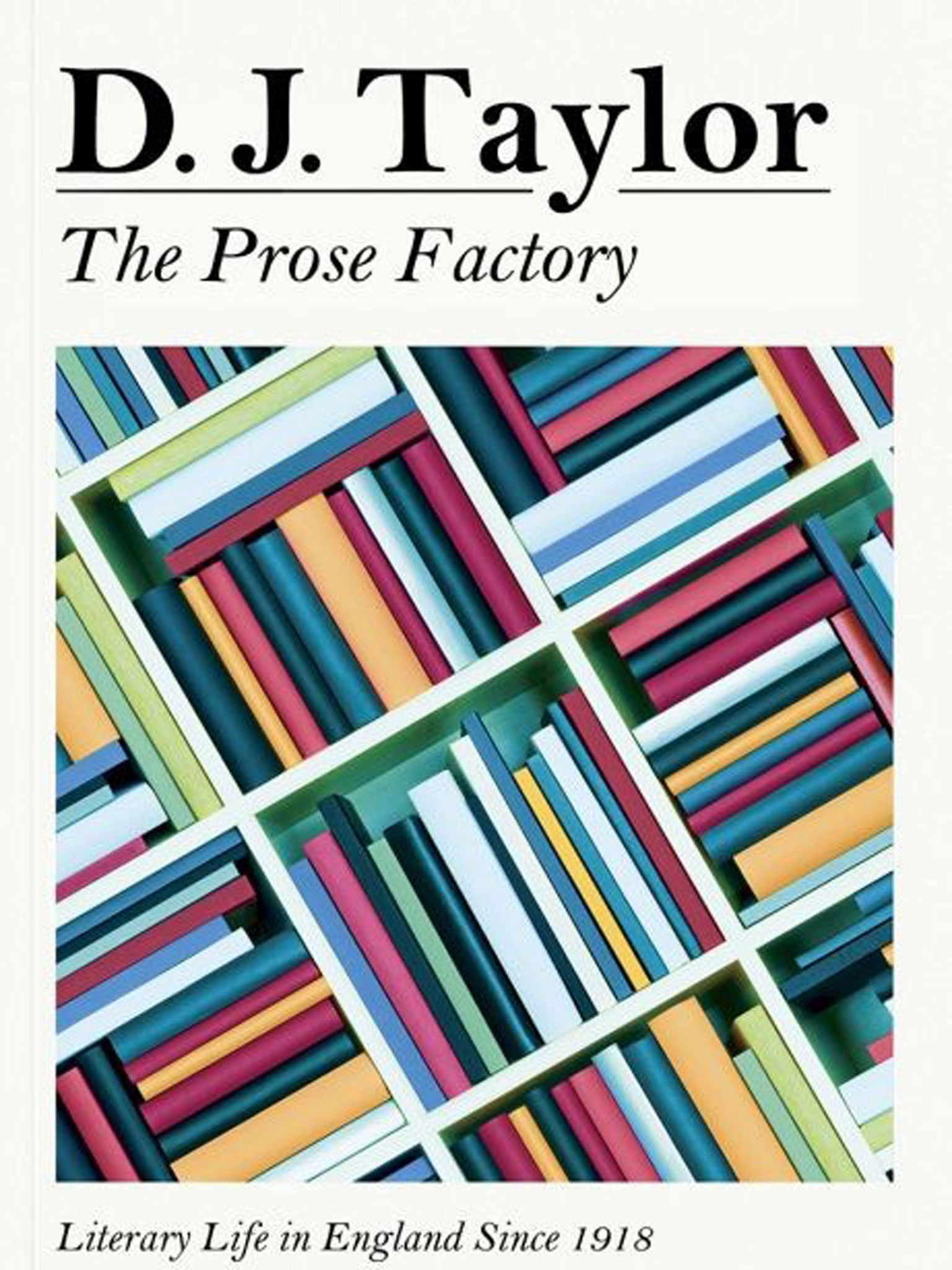The Prose Factory by DJ Taylor, book review: An engaging literary history
Subtitled Literary Life in England since 1918, Taylor's book provides a loose, baggy history of a culture that moves in "peculiar ways"

Your support helps us to tell the story
From reproductive rights to climate change to Big Tech, The Independent is on the ground when the story is developing. Whether it's investigating the financials of Elon Musk's pro-Trump PAC or producing our latest documentary, 'The A Word', which shines a light on the American women fighting for reproductive rights, we know how important it is to parse out the facts from the messaging.
At such a critical moment in US history, we need reporters on the ground. Your donation allows us to keep sending journalists to speak to both sides of the story.
The Independent is trusted by Americans across the entire political spectrum. And unlike many other quality news outlets, we choose not to lock Americans out of our reporting and analysis with paywalls. We believe quality journalism should be available to everyone, paid for by those who can afford it.
Your support makes all the difference.The Prose Factory would be a worthy contender for DJ Taylor's autobiography. For three decades, he has lived not so much by the pen as with it, manufacturing fiction, stories, biographies, reviews, criticism and journalism of impressive diversity. He is to high-browish literature what James Patterson is to popular forms, only Taylor doesn't need a host of collaborators – or a university stipend – to fund his freelance endeavours.
If he feels like the last of a breed, then Taylor would fit nicely into the final chapters of his new book. Subtitled Literary Life in England since 1918, it provides a loose, baggy history of a culture that moves in "peculiar ways". The apt starting point is the transformation of TS Eliot's reputation after the First World War: he was praised "for characteristics (incoherence, ambiguity, allusion and so forth) that had been previously been used to damn him".
Taylor shifts gears from here through terrain familiar and strange: Orwell in the Thirties, Bloomsbury late and small, a sharp account of the Arts Council, the rise of the mega-agent, mega-advance and mega-prize, a present when writers and publishers alike are learning to swallow Amazon.
Taylor is often at his best when explaining how each epoch was reflected by the character of its critical alchemists – FR Leavis, Ian Hamilton, John Carey, James Wood. One suspects his real delight is in unearthing less well-known "belles-lettrists" such as Sunday Times literary editor Raymond Mortimer or Edgell Rickword whose Calendar of Modern Letters tried to "build bridges between the general reading public and the finest minds of the age".
The focus on personalities lends The Factory the chatty, parenthetical mood of an interlinked collection of non-fiction short stories. The ease of movement is matched by that of tone. No detail is too small for Taylor's attention. It was nice to be reminded that readers were "just as likely to find the names of Lacan and Derrida in the New Musical Express… as in the New Statesman".
Such a free-flowing narrative entails spaces and oddities: a rather inconsequential chapter on the Beatles; a dearth of bestselling writers, even though Taylor would choose Orwell over Eliot any day; a tendency to view academic scholars through the prism of their starriest but least representative talents (Leavises, Careys, Lodges, Eagletons etc).
Mostly, Taylor is engaging, assured and entertaining. His downbeat conclusion about publishing's uncertain present, is both acute, based on his intelligently chaotic approach, surprisingly definite.
Chatto & Windus £25. Order for £20 (free p&p) from the Independent Bookshop: 08430 600 030
Join our commenting forum
Join thought-provoking conversations, follow other Independent readers and see their replies
Comments